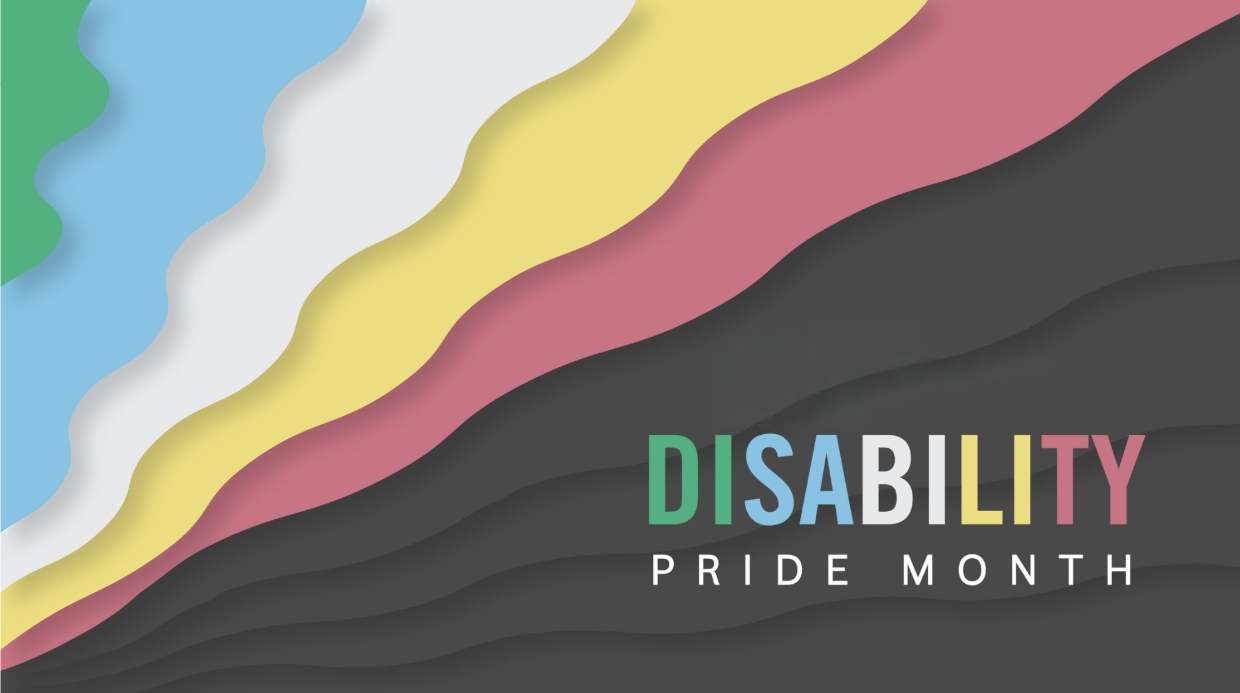Leadership Profiles
Socially Responsible Investing

Ebony Perkins, Investor and Community Relations Manager
Ebony Perkins is a dedicated, solution-oriented social entrepreneur whose heartbeat is community. She has a demonstrated ability of working with investors and philanthropists to help them make smart and strategic decisions. As Self-Help's Investor & Community Relations Manager, Ebony helps groups and individuals invest funds in a socially responsible financial institution that supports communities of all kinds, especially those underserved by conventional lenders. Before that role, she served as the Donor Relations Manager at Central Carolina Community Foundation where she managed a system to engage and educate over 400 individuals and groups to help them achieve their charitable goals.
Ebony’s commitment to community investing is evident by her service and contributions to Women In Philanthropy, Durham Center for Senior Life, and the University of North Carolina MPA Alumni Board. Ebony was also recognized on the SRI Conference's inaugural 30 Under 30 List.
Ebony holds a Master of Public Administration from the University of North Carolina at Chapel Hill and a Bachelor of Science in Marketing from Claflin University as a summa cum laude graduate. She also has an Executive Certificate in Financial Planning from Duke University.

Nuray Ozbay, Policy and Impact Investment Associate
Nuray Ozbay leads Self Help’s efforts to cultivate mission-supportive depositors and impact investors within and beyond Self-Help’s California footprint. As a global movement and relationship builder, Nuray loves working with change-makers across non-profit, corporate, and public sectors. Her expertise is in intersectional gender equality, global civil society activism, social justice, and ESG investing. Nuray currently serves as a Board Director at the UN Women San Francisco Chapter and a National Expert on Violence Against Women at the European Women’s Lobby, the largest umbrella organization of women’s associations across Europe. Before joining Self-Help, Nuray spent 11 years in the social impact sector as a researcher, consultant, and non-profit leader across Turkey and Europe, working on issues including but not limited to immigration, women’s access to economy, financial literacy & inclusion, entrepreneurship, and care economy.

Kimberly Jones, Investment Associate
Kimberly's professional career spans both the nonprofit and community development financial services sectors, with expansive senior leadership roles in arts management; business and resource development; community relations; and corporate philanthropy. Currently, she's Self-Help's Investor Relations Manager, where she helps individuals and institutions align their banking and investments with their mission, vision, and values. Kimberly has held leadership positions that advanced the missions of creative organizations and community development financial institutions seeking to make a difference in communities in their footprint. She has been a founding board member of mission driven organizations that supported the growth and development of young artists, creatives, and professionals in the nonprofit sector.
In 2015, Kimberly was selected to be a PLACES Fellow with The Funders Network, where she explored the role of philanthropy through an equity lens in low to moderate income communities. She has served as a grant/award reviewer for organizations that championed organizational excellence, community development, and environmental sustainability. Kimberly has a BA in Political Science from the University of Minnesota-Morris and an MA in Arts, Entertainment, and Media Management from Columbia College Chicago.
Green Economy; Sustainable Society; Investing for the Environment
Melissa Malkin-Weber, Sustainability Director
Melissa has worked across a broad span of hands-on sustainability practices. At Self-Help Credit Union, she integrates the triple bottom line into the organization’s financial products, operations, and buildings portfolio. She led Self-Help to realize over $1.7 million in net present value from initiatives in this sector, including $180,000 energy savings in our own operations. Melissa previously directed the residential energy efficiency and indoor air quality research program at Advanced Energy and worked in industrial pollution prevention at RTI International. She earned her law degree from University of Michigan, and her Master's from UNC’s School of Public Health.
Shondra Tanner, Mortgage Lending
Shondra Owens Tanner brings her extensive experience and commitment to making mortgage loans for low-wealth families to her position as Self-Help's Director of Mortgage Originations, where she oversees all North Carolina home loan origination and new business development. Shondra's areas of expertise includes buying your first home, mortgage basics (documentation, closing costs, down payments), delinquency and loss mitigation (What is a forbearance and loan modification and what does that do to your credit?)
How Federal Budget Changes Will Financially Impact People With Disabilities

July is Disability Pride Month, which celebrates people with disabilities and commemorates the signing of the Americans with Disabilities Act on July 26, 1990. This landmark legislation was a huge step in ensuring the inclusion of people with disabilities
in society by preventing discrimination and protecting rights. While societal inclusion is important for combatting discrimination, financial inclusion is just as important for helping people to maintain their independence and freedom.
While the new federal budget will have an impact in many people’s lives, the disability community will likely be navigating additional adjustments as varying pieces of the new bill are put into place. It’s important for people with disabilities
to be aware of all of the potential changes coming their way, so they can best prepare and make necessary changes to try and maintain financial stability.
In this blog post, we will be discussing the varying budget changes that might impact people with disabilities and their families as well as discussing some potential resources and options to help keep finances and support more manageable.
Disability Is a Spectrum
Before we dive into the changes coming that might impact people with disabilities, it’s important to understand that not every person with disabilities will be impacted by every change mentioned. There is a huge spectrum of disabilities that
results in different access needs, daily impact, required resources, and support. This guide is meant to provide generalized support for people who are more likely to be affected by the upcoming federal budget changes.
Medicaid
The new federal budget bill includes nearly $1 trillion in cuts to Medicaid and changes to qualifications like work requirements, eligibility, and administrative processes. While disabled people are not explicitly mentioned in the changes, many disabled
people rely on Medicaid coverage for medications, care, and services. As the Center for American Progress and The Arc lay out in a recent joint article, some people with disabilities may experience a loss in coverage, and many will experience increases in their costs for medical care due to
rising copays and fewer benefits and out-of-pocket costs being covered.
Work Requirements
Work requirements have become stricter with limited exemptions. This means people with disabilities and caretakers are more likely to lose coverage. According to The Arc of Massachusetts, most Medicaid recipients who are able to work are already working. Those who aren’t working generally want to but struggle to find suitable jobs
due to a lack of support and other barriers to employment. While there are some exemptions to the work requirements, exemptions are often burdensome and challenging to prove. Some people may lose coverage simply for not being able to keep
up with paperwork.
Administrative Hurdles
Similar to the work requirement changes, there will also be changes in eligibility redeterminations, which will now occur twice a year instead of annually. The verification requirements will also be stricter. Together, these changes will cause more
opportunities for errors and missed deadlines, which will likely lead to many people inadvertently losing access to their Medicaid. Limited resources will also have to be allocated to implementing these requirements, which means that there will
be even less resources for Medicaid programs and benefits.
Home and Community-based Services
One of the biggest direct impacts for people with disabilities that advocates are particularly worried about is the impact on home and community-based services (HCBS) that usually provide disabled people and older adults with daily assistance for tasks such as eating, dressing,
using the bathroom, and getting to work. HBCS includes:
- Personal care attendant programs
- In-home nursing care
- Therapies
- ...and much more
In a letter to senators, disability
organizations noted that 86% of optional Medicaid spending is used for services and support for people with disabilities and older adults, more than half of which is for HCBS. Without these services, people with disabilities who rely on this assistance will
lose some of their independence, may have a harder time making it to their jobs, or could require a family member to step in as a caretaker, affecting more people’s ability to work and, therefore, have access to services like Medicaid.
There is already a huge waitlist for these services, but cuts to funding will make it even harder for people who need support to receive these services.
SNAP
During a time when food insecurity is already a pressing challenge due to rising grocery costs and economic instability, this change could have a detrimental impact on the livelihood of many Americans, particularly low-income communities, communities
of color, and disability communities. It is estimated that these cuts will impact 4 million non-elderly adults with disabilities who rely on SNAP.
Between the cuts to Medicaid and the cuts to SNAP, people with disabilities and caretakers who rely on both services could end up having to choose between feeding their families and purchasing life-saving medications.
Higher Education
The new bill imposes stricter caps on student loans,
particularly for grad students and parents. Because people with disabilities often experience a higher cost of living and could require special living or transportation accommodations to attend graduate school, caps on student loans could inadvertently
prevent more people with disabilities from pursuing a higher education by making the financial burden too overwhelming for them to consider. This could also have a cyclic effect of then making it harder for people with disabilities to become employed
throughout their lives.
Resources
While these budget cuts will impact many disabled and low-income communities, there are resources to help prepare affected individuals with additional support and options:
- Disability advocates like The Arc, The American Association of People with Disabilities (AAPD),
and Disability Rights Education & Defense Fund (DREDF) are hard at work keeping communities updated with resources, pertinent information,
and support.
- Protection and Advocacy (P&A) systems were established to safeguard the rights of individuals with disabilities. If you need legal representation, advocacy, or advice, each state has an agency you can turn to.
- Independent living centers and other local nonprofits are likely available in your area to provide support, housing help, and skill-building.
- Many community-focused credit unions, like Self-Help, offer services that can help you make good financial decisions, even in uncertain times. We offer free financial coaching, affordable loans, and options
like money market accounts and term certificates to help you grow your savings.
With the new federal budget bill comes uncertainty and a potential hit to financial stability and independence for many people with disabilities. At Self-Help, we believe in ownership and economic opportunity for all, which means we are here to support
underserved communities in building wealth and making responsible financial decisions.
We are honored to commemorate Disability Pride Month and will continue working to provide helpful information and support for the disability communities.